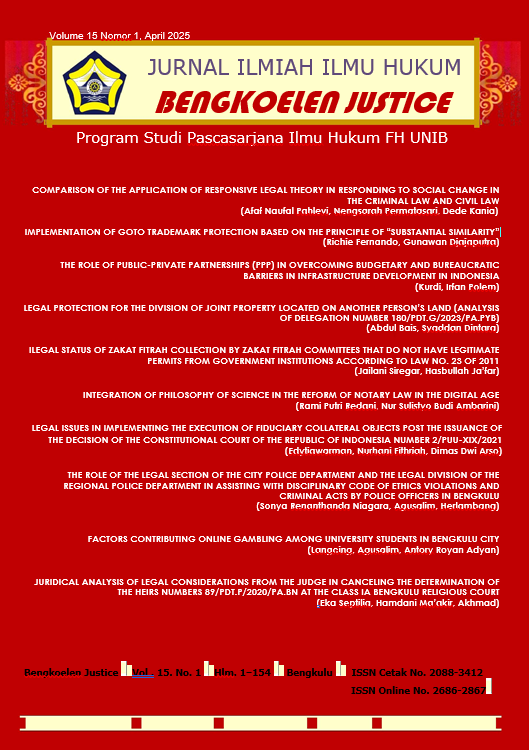Main Article Content
Abstract
Philippe Nonet and Philip Selznick stated that responsive law is a law that is oriented to the fulfillment of social needs and is able to adapt according to the dynamics of society. This study aims to compare the application of responsive legal theory in responding to social changes in the field of criminal and civil law. The research method used is normative or doctrinal legal research with a conceptual and comparative approach. The conceptual approach is used to understand the basic principles of responsive legal theory that emphasize legal flexibility in dealing with social dynamics. A comparative approach is applied to analyze the similarities and differences in the application of this theory in criminal and civil law. The results show that the application of responsive law theory in criminal law tends to focus on the rehabilitation of perpetrators and the restoration of social relations through a restorative justice approach. On the other hand, in civil law, this theory is implemented through flexible alternative dispute resolution, such as mediation
and arbitration, which considers substantive justice for the parties to the dispute. Although the goals and processes in these two areas of law are different, they emphasize the need for legal adaptation to social changes and societal needs. Thus, responsive legal theory is expected to be able to create a legal system that is more inclusive, fair, and relevant to the development of Indonesian society.
Keywords: Civil Law, Criminal Law, Responsive legal theory, Social Change.
Article Details
Copyright (c) 2025 Afaf Naufal Pahlevi, Nengsarah Permatasari, Dede Kania

This work is licensed under a Creative Commons Attribution-ShareAlike 4.0 International License.

Ciptaan disebarluaskan di bawah Lisensi Creative Commons Atribusi-BerbagiSerupa 4.0 Internasional.
